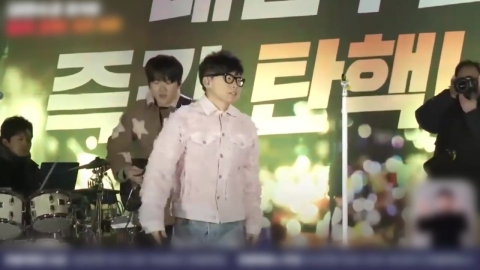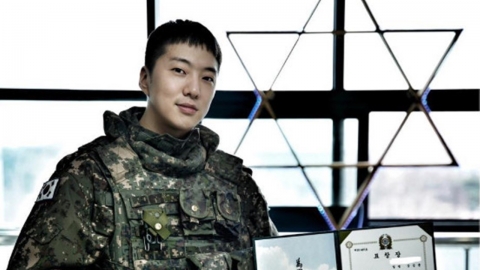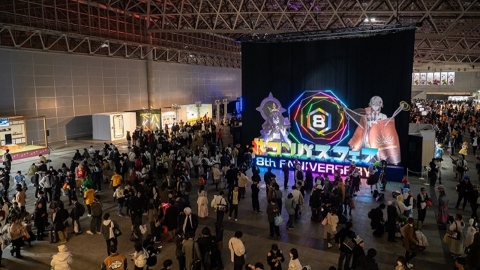□ Broadcast date and time: December 17, 2024 (Tue)
□ Host: Announcer Park Gui-bin
□ Castor: Kim Gil-young, Chairman of the Balanced Urban Planning Committee, Seoul Metropolitan Council
* The text below may differ from the actual broadcast content, so please check the broadcast for more accurate information.
◆ Announcer Park Gui-bin (hereinafter referred to as Park Gui-bin): It is time for "Wise Special Citizen Life" with the Seoul Metropolitan Council, a legislative body that represents the voices of 10 million Seoul citizens. Today, he is the chairman of the Seoul Metropolitan Council's Urban Planning Balance Committee. I'm with Seoul Metropolitan Councilman Kim Gil-young. Hello, Senator.
◇ Kim Gil-young, Chairman of the Seoul Metropolitan Council for Urban Planning Balance (hereinafter referred to as Kim Gil-young): Yes, hello.
◆ Park Gwibin: Yes, can you say hello first?
◇ Kim Gil-young: Yes, hello. We have the Seoul Metropolitan Government's Balanced Urban Development Headquarters and Balanced Development Headquarters to make a city that Seoul citizens of all ages want. I am Kim Gil-young, chairman of the Urban Planning Balance Committee, which is in charge of the two headquarters on the big stem. Nice to meet you.
◆ Park Gui-bin: Welcome. Before we invite you, we played Zico's song as a hint song for the SAT today. When the song was playing, he came into the studio and said he liked it. What's your favorite song? Do you like idol songs these days?
◇ Kim Gil-young: I was an athlete when I was in school, and I hypnotized myself by listening to bright music like that before the competition.
◆ Park Gui Bin: What kind of exercise did you do?
◇ Kim Gil-young: I've been a speed skater since elementary school. I went up in grade and did an exercise called ice hockey.
◆ Park Gui-bin: Did you even represent the national team?
◇ Kim Gil-young: The national team represented the national team as an in-line hockey player. North American league or European ice hockey players are usually in the offseason. In the non-winter season, ice hockey skates were changed to wheels only at the bottom, so the clothes were all the same. There are a lot of world championships every year.
◆ Park Gui-bin: Yes, I'm increasingly curious about how you became a politician after living as an athlete for the national team.
◇ Kim Gil-young: At first, I was interested in sports medicine, so my dream was to become an exercise prescription.
◆ Park Gui-bin: You majored in that, too.
◇ Kim Gil-young: Yes, I was majoring in sports medicine, and the trend itself was a time when sports marketing developed a lot in 1997 and 1998. So it was the early days. At that time, I thought I had to change my major, so I changed to sports management and managed sports, and in the end, there are a lot of major things within the category of management. Among them, I planned and marketed my major well, so I looked at the sports policy that we have in our zeitgeist, and I thought it would be good to do it in this area. So, I thought I should propose various sports policies and do some things, so I worked as an assistant in the National Assembly and as a Gangnam-gu councilor. That's why I think I'm here at the Seoul Metropolitan Council.
◆ Park Gui-bin: There is a report that you were the president of the student council when you were in college.
◇ Kim Gil-young: I'm not the president of the student council, I was the president of our department. I was the president of our college student council. What's a little different is that I've been the president of our department for 17 years.
◆ Park Gui-bin: Alumni president that not everyone can do. that every alumni should like That's right. So I'm talking with Kim Gil-young, a member of the Seoul Metropolitan Government, and that's how you entered politics, and as you said earlier, you've been a member of Gangnam-gu District Council and now you're a member of Seoul Metropolitan Government. And this time, he will also serve as the chairman of the Urban Planning Balance Committee in the second half of the year. Please explain what the Urban Planning Balance Committee does for those who may be a little unfamiliar with it.
◇ Kim Gil-young: We have some departments in Seoul that are creating urban planning. For example, the Urban Space Headquarters and the Balanced Development Headquarters. By creating policies at the Balanced Development Headquarters, this Sangam DMC (Digital Media Center) is also formed. Those are called district unit plans. How to use the land well through the district unit plan. How to improve its function is done through the district unit plan. In the title of the committee called Urban Planning, the Urban Space Headquarters and the Balanced Development Headquarters are checked and balanced. On the balance side, we check and balance again, but on the balance side, we are implementing global policies in Seoul, things related to foreigners, youth, and design. Urban Design? If you go to Dongdaemun, there's DDP. Our design foundation also checks and balances our Seoul Metropolitan Government's executive departments.
◆ Park Gui-bin: As the chairman of the Urban Planning Balance Committee, you will be working as a legislator in the second half of the year, and as the chairman of the committee, you have to look at your district as a Seoul Metropolitan Council member, and in fact, you have a lot to do. This is the Seoul City section that we are preparing with the intention of giving approval to citizens to see what Kim Gil-young, a member of the Seoul Metropolitan Government, has done for our citizens and has plans to do. Let's proceed with "Seoul Metropolitan Councilman Kim Gil-young's Citizen Report." What's the first thing you want to report?
◇ Kim Gil-young: Our district is currently an international exchange complex, and my district is around Samseong-dong. The International Exchange Complex District is currently tied to the land transaction permit system. So it's a situation where it's regulated. I would like to ask you whether the land transaction permit system is really effective.
◆ Park Gui-bin: There are some restrictions on trading land whenever you hear something about the land transaction permit area. What part of this are you pointing out?
◇ Kim Gil-young: After all, this is a land transaction permit system, but in fact, it's a housing transaction permit system. The current problem is that as it is prolonged in the end, it is being infringed on property rights or residential rights of our residents and Seoul citizens. If you try to trade a house, you eventually have to get permission from the government office. When we usually trade houses, we usually go to real estate and do transactions. But these areas, those areas that are tied up by the land transaction permit system, have to get permission from the government. I don't think the sale will be a little good.
◆ Park Gui-bin: The process must be very difficult when buying and selling a house.
◇ Kim Gil-young: Your reason for buying and selling should be justified. By doing so, I will prevent any speculative demand or things like that, I will stabilize housing prices. That's the intention.
◆ [Park Gwibin] Yes, I see. What regulations specifically apply?
◇ Kim Gil-young: For example, it's like this. We have "Buddhist Dong" and "Administrative Dong". The land transaction permit system is currently legal. For example, if I tell you what that means in my district, we can divide Samseong-dong into Samseong 1-dong and Samseong 2-dong. Beopjeong-dong means Samsung-dong, and administrative-dong means Samsung 1-dong and Samsung 2-dong. But how the land transaction permit system is operating now is Daechi-dong, for example, because Daechi-dong has a land transaction permit system due to a special regional plan called the International Exchange Complex. Among Daechi-dong, only 34% of 1 dong, 2 dong, and 4 dong are adjacent to the International Exchange Complex. So literally Daechi 1-dong is over there. But since this system is legal, Daechi-dong is tied up as a land transaction. So in a way, some residents, no, my house is in Dogok Station, but it's quite far from Samseong Station.
◆ Park Gui-bin: But since it's Daechi-dong in legal-dong, it's a situation where you have to get permission to trade land.
◇ Kim Gil-young: As a result, complaints kept coming out, but it's been 4 years this year. So I think I've come to the point of handover until I can bear it. The residents. So this year, the Seoul Metropolitan Government is conducting a service on whether the land transaction permit system is really effective. We had an expert debate last October. This December, we will also hold another civic debate this month to see if the land transaction permit system is really effective.
◆ [Park Gwibin] Yes, I see. So, he pointed out that it is necessary to review the effectiveness of the land transaction permit system as the first report. Let's move on to the second one. That's what you proposed as a representative. You have proposed the ordinance regarding the right to use the name on behalf of me. What is it about?
◇ Kim Gil-young: That's right. So, since I majored in sports management, I see a lot of overseas cases as I do sports marketing. It's the same through our thesis. We call it "Naming Lights" and we call it "Myung Kwon." Not long ago, a OOO-owned company in Seongsu Station bought it under the name of the station and paid for it called Naming Rights. There are some public sports facilities in Seoul. For example, there are Jamsil Stadium, Gocheok Dome, and Mokdong Stadium, and those places allow companies to wear that name and pay for it.
◆ Park Gwi-bin: Yes, then it's like a copyright fee.
◇ Kim Gil-young: That's right. That's why I made the ordinance. Should I say that naming rights are legal in Seoul? I made an ordinance that makes it officially possible. In the case of the United States, as you know, for example, in about 15 to 20 years, it's usually about 350 billion won in Korean money. A company or an insurance company operates that kind of stemium name. If you look at the soccer players, it's written on their chests. All of those things are called naming lights. For example, Gocheok Dome and Mokdong Stadium are aging, so Gocheok Dome is a little less, but through aging, we have general stadiums and things like that, and each place costs about 2 billion won to repair. But in the end, that's the tax our citizens pay.
◆ Park Gui-bin: I see. Then, you proposed an ordinance on the right to use this name, so what effect did you expect and come up with the ordinance?
◇ Kim Gil-young: In the end, revenue increases in Seoul and companies literally increase their awareness, so in a way, it has a marketing effect.
◆ Park Gui-bin: I see. So, the second citizen report is that you proposed a partial amendment to the Seoul Metropolitan City Ordinance on the Establishment and Operation of Sports Facilities. Naming Lights. It's about the right to use the name. The third content is that you proposed a policy to promote the influx of foreigners.
◇ [Kim Gil-young] Yes, that's right. I'm going to an aging society. But the OECD is usually multicultural. It literally accommodates immigrants and is said to be a multicultural rate, but usually about 13% is the average. But in Korea, the OECD is now 4.8%.
◆ Park Gui-bin: The multicultural ratio in Korea is 4.8%. So it's significantly lower than the OECD?
◇ [Kim Gil-young] Yes, that's right. So, as a policy method to overcome low-born students, we are doing things like recruiting talented people from foreign students in Seoul right now. I went to Indonesia this year. to a study abroad fair I'm trying to recruit really good friends.
◆ Park Gui-bin: Then I think we need a budget. Also, I think we need to discuss it with the school and the education office.
◇ Kim Gil-young: That's right. So, the standing committee is also talking about whether there are many international students who come here and live here, or whether there are more percentages left to settle here by recruiting elementary, middle, and high school students. In our view, the urban planning trend itself is called "jikjurak" in Tokyo and Europe, so in the end, there should be jobs, housing, and culture in one city. But the other definition I have is 'hok' (a Korean word for 'hok').
◆ Park Gwibin: To school.
◇ Kim Gil-young: Yes. I think that the future city planning of urban planning will eventually go that way only if there is a school.
◆ Park Gui-bin: That's why you're discussing it together.
◇ Kim Gil-young: Yes. For example, in the case of elementary, middle, and high schools, it is necessary to create an international school, but in the end, it is related to the Office of Education, so discussions are underway. More importantly, expatriates, for example, come to the International Exchange Complex, and the most important thing is for us, but most expatriates prioritize their children's school, education, medical care, and safety. So shouldn't we also have some such facilities in the International Exchange Complex District?
◆ Park Gui-bin: I see. So, I summarized three things that Seoul Metropolitan Councilman Kim Gil-young will report to Seoul citizens today. It's coming to an end. It's the end of 2024. There's not much time left. The new year of 2025 is just around the corner. How do you feel about your next year's legislative activities?
◇ Kim Gil-young: Policy is not made by me, it's made by our Seoul Metropolitan Government executives. I literally check and balance that policy, and if there is a better policy, I make a proposal, so I consult with public officials. Small business owners are having a hard time these days. The alley business areas are also in a very difficult situation, so what I'm thinking about right now is that the system in the UK is 'Fresh Air Route' and I set up the navigation system. If you set up a destination, where you go, there's literally Fresh Air over there. We have policies that are less fine dust. But if you look at the results of those policies, in the end, there are no alleyway cars. In the end, I think it will help revitalize the alley business district in the end so that such a policy can be realized once and people can get closer to the alley.
◆ Park Gui Bin: Okay. I'm looking forward to the legislative activities in the second half of the year. We have one last question left. Maybe it's a very difficult question. "Kim Gil-young's legislative icon is OOO." How can you fill it in?
◇ Kim Gil-young: I brought 6 characters rather than 3 characters. 'This is the future'
◆ Park Gui-bin: This is the future. What does it mean?
◇ Kim Gil-young: In the end, I really want to make it like that. Leaving my district and making sure to enter Seoul into the top five global cities, the most important thing is that the city should be a growing city, a good city to live in, and a communication connection with each other. It's communication that's necessary not only for transportation but also for generations. Eco-friendly, eco-friendly. Lastly, the trend. I want to make such a city. I want to make it with all the citizens.
◆ Park Gui-bin: I look forward to that future becoming a reality. So far, he is the chairman of the Seoul Metropolitan Council's Urban Planning Balance Committee. I was with Seoul Metropolitan Councilman Kim Gil-young. Senator, thank you.
◇ Kim Gil-young: Yes, thank you.
[Copyright holder (c) YTN Unauthorized reproduction, redistribution and use of AI data prohibited]
Society
More- "Tractor Sang-kyung" farmers continue to confront the police...joining the ranks of the citizens
- New resident next year, 5% of capacity...There's only one obstetrician.
- A tight parliamentary conversation in the "Jungkook of Impeachment"...Where's the legislative conflict?
- 'Tractor Shanghai' Farmers Blocked Namtaeryeongseo...Snow accidents, too.



![[Weather] 10cm of heavy snow followed by cold weather...Tomorrow, central -10℃](https://image.ytn.co.kr/general/jpg/2024/1221/202412212207352080_h.jpg)


![[Y Review] "Bogota" without Woollim...Only Song Joong Ki's transformation and exotic scenery shine.](https://image.ytn.co.kr/general/jpg/2024/1220/202412201628290103_h.jpg)



